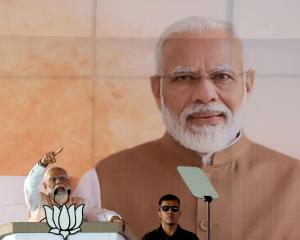The palliative care movement in fact benefits from medically assisted death, writes Ann David. She responds to the comments in Dunedin of Welsh palliative care specialist Baroness Prof Ilora Finlay (ODT, 15.8.12).
It is well known that the palliative care movement in New Zealand opposes euthanasia, although it accepts terminal sedation. This is the practice of removing life support including food and water and keeping the patient sedated until he/she dies "naturally", taking anything from minutes to weeks. In my mother's case it took nine days, during which time she floated in and out of awareness as her organs slowly decomposed. It was the best the hospital could offer, given that the active hastening of death which was most emphatically what she wanted, is not legal.
As admirable as palliative care practitioners are, I find there is something disturbing in their zealous obsession that a patient whose life philosophy is different from their own, needs re-education on their deathbed.
Such a patient must, according to Prof Ilora Finlay, be a "control freak" or they must have been subtly coerced by family and society to consider themselves "burdensome".
They now need to learn that they are valued - as proven by disregarding their wishes. If only palliative care practitioners could accept their patients as they are, they could do even more good than the considerable good they already do.
The palliative care movement has actually benefited from the introduction of voluntary euthanasia legislation in other jurisdictions. In Holland, Belgium, Luxembourg, Oregon, Washington and Montana, the process of assisting a patient to die must start by law with a referral to palliative care as a first option. The same requirement forms part of Maryan Street's End of Life Choice Bill.
Prof Finlay says, "The rate of physician-assisted deaths had also risen significantly in Oregon" (since legalisation 10 years ago).
In fact, medically assisted deaths are less than 0.5% of total deaths in Oregon according to Yvonne Shaw, the former administrative director of Compassion and Choices of Oregon. Quoting Ms Shaw, "The referral rate in Oregon, renowned for having excellent hospice and palliative care, is about 60%, but among those who seek PAD (Physician Aid in Dying) the rate burgeons to 95%, simply because when people call to access Death with Dignity, they are referred to hospice for pain and symptom management even as the initial requests for physician appointments are being organised."
In Holland, Belgium, Luxembourg, Oregon, Washington and Montana, medically assisted euthanasia is accepted by palliative care practitioners as the ultimate palliative measure for those patients who will be satisfied with nothing else. Practitioners report that for some patients, just knowing that they can call a halt to their suffering if it becomes unendurable is in itself palliative, even if it is never requested. How much more understanding of human psychology is this than the outright rejection of the patient's viewpoint?
As Prof Finlay says, in the Netherlands one in 45 of all deaths is now physician-assisted. This equates with 2.3%.
In reporting these statistics, the website of the Royal Dutch Medical Society posts, "The vast majority of these causes (81%) were people in the final stages of cancer with the euthanasia usually performed at home by the family physician."
I wonder why Prof Finlay suggests there is something sinister about this.
Does she feel these patients ought to have been forced through terminal sedation, instead?
Recent research on the topic of suggested increase in the practice of euthanasia due to its legalisation was published in The Lancet on July 11, 2012.
The six co-researchers write, "In conclusion, eight years after the enactment of the Dutch euthanasia law, the incidence of euthanasia and physician-assisted suicide is comparable with that in the period before the law ... Euthanasia and physician-assisted suicide did not shift to different patient groups and the frequency of ending of life without explicit request continued to fall."
So it was being done before legalisation. It is still being done after legalisation at the same rate and for the same reasons, except that now the patient can be openly consulted and the doctor is protected from litigation provided the patient satisfies the eligibility criteria.
If you think that the Dutch pre-legalisation situation does not happen in New Zealand, think again. Doctors can and do hasten death. They do so at their peril and at their discretion, because voluntary euthanasia is not yet legalised.
• Ann David, of Picton, is a member of the Voluntary Euthanasia Society of New Zealand












